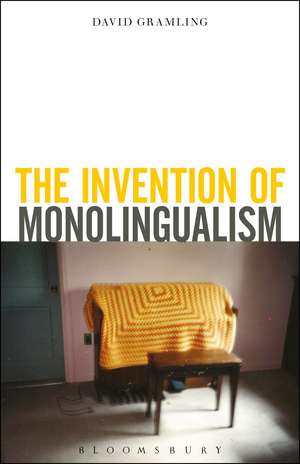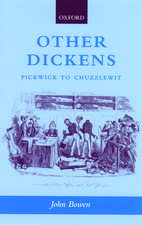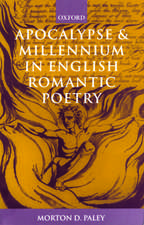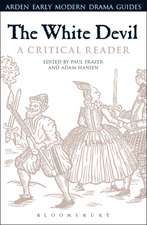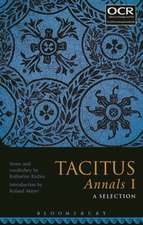The Invention of Monolingualism
Autor Dr. David Gramlingen Limba Engleză Paperback – 5 oct 2016
| Toate formatele și edițiile | Preț | Express |
|---|---|---|
| Paperback (1) | 188.73 lei 6-8 săpt. | |
| Bloomsbury Publishing – 5 oct 2016 | 188.73 lei 6-8 săpt. | |
| Hardback (1) | 831.03 lei 6-8 săpt. | |
| Bloomsbury Publishing – 5 oct 2016 | 831.03 lei 6-8 săpt. |
Preț: 188.73 lei
Preț vechi: 220.94 lei
-15% Nou
Puncte Express: 283
Preț estimativ în valută:
36.12€ • 39.22$ • 30.34£
36.12€ • 39.22$ • 30.34£
Carte tipărită la comandă
Livrare economică 22 aprilie-06 mai
Preluare comenzi: 021 569.72.76
Specificații
ISBN-13: 9781501318047
ISBN-10: 1501318047
Pagini: 272
Dimensiuni: 140 x 216 x 22 mm
Greutate: 0.2 kg
Editura: Bloomsbury Publishing
Colecția Bloomsbury Academic
Locul publicării:New York, United States
ISBN-10: 1501318047
Pagini: 272
Dimensiuni: 140 x 216 x 22 mm
Greutate: 0.2 kg
Editura: Bloomsbury Publishing
Colecția Bloomsbury Academic
Locul publicării:New York, United States
Caracteristici
A highly original piece of work that will have implications for a range of fields, from the world literature debates to the notion of untranslatability in translation studies to current ideas of the nature of citizenship
Notă biografică
David Gramling is Associate Professor and Director of Graduate Studies in the Department of German Studies at the University of Arizona, USA. His research focuses on the intersections of social multilingualism, literary translation, mass migration, queer studies, nationalism, and critical theory. With Deniz Göktürk, Anton Kaes, and Andreas Langenohl, he is co-editor of two major sourcebooks on migration and multiculturalism in Germany since 1955: Germany in Transit (2007) and Transit Deutschland (2011). He is also a working literary translator, and a member of the American Literary Translators' Association.
Cuprins
Preface and Acknowledgments Introduction1 Monolingualism: A Users' Guide2 Kafka's Well-Tempered Piano3 The Passing of World Literaricity4 Right of Languages, Rites of UntranslatabilityEpilogue: Into the LinguaceneWorks CitedIndex
Recenzii
The Invention of Monolingualism is an engaging, well written, and carefully researched book. Gramling combines work in applied linguistics, literary studies, musical theory, and citizenship studies in a way that is genuinely and deeply transdisciplinary. Its arguments are groundbreaking, offering a provocative and timely commentary on the lack of theoretical engagement with monolingualism as a social and political force. The book has considerable significance not only for applied linguistics but other fields that are affected by the ongoing normative influence of monolingualism. -
An extraordinary and illuminating book, spanning literary and cultural studies, applied linguistics, social and cultural theory, and more. Original, brilliantly presented, provocative, and extremely timely, The Invention of Monolingualism is likely to be a blockbuster with its far sighted argument-a little in the vein of Michel Foucault's The Order of Things in terms of scope and boldness. It will be of great interest to not only literary and cultural studies readers, but also to applied linguists and social scientists as well.
A seminal work on the presentation and analysis of the complex concept of monolingualism.
Every now and then a book comes along which is simply compelling with its breadth and depth of argument, its dazzling examples and its sheer boldness of vision. This is one of the most important books to be written on languages, monolingualism and multilingualism I have read. It will make you think about monolingualism and about languages in quite new ways.
Gramling's presentation of a subtle and nuanced approach to understanding monolingual modes and mediums of communication constitutes a significant contribution to the fields of linguistic and literary studies, and has a particular interest for scholars of comparative literature, who tend to work in monolingual terms with translated texts.
The Invention of Monolingualism will be of interest not only to sociolinguists intent on studying or critiquing 'monolingualism' but more broadly to those wishing to expand their epistemological purview of what constitutes 'a language' or perhaps even 'language' in the first place.
As links between language and identity continue to receive increased scrutiny, there is a pressing need to understand the functioning - and indeed, as David Gramling suggests - the 'invention' of monolingualism as an ideology. Drawing on material from history, literature and policy, this compelling book explores how multilingualism has been disciplined in monolingual ways . This book is essential reading across Arts and Humanities disciplines, especially those traditionally limited to monolingual ways of thinking.
An extraordinary and illuminating book, spanning literary and cultural studies, applied linguistics, social and cultural theory, and more. Original, brilliantly presented, provocative, and extremely timely, The Invention of Monolingualism is likely to be a blockbuster with its far sighted argument-a little in the vein of Michel Foucault's The Order of Things in terms of scope and boldness. It will be of great interest to not only literary and cultural studies readers, but also to applied linguists and social scientists as well.
A seminal work on the presentation and analysis of the complex concept of monolingualism.
Every now and then a book comes along which is simply compelling with its breadth and depth of argument, its dazzling examples and its sheer boldness of vision. This is one of the most important books to be written on languages, monolingualism and multilingualism I have read. It will make you think about monolingualism and about languages in quite new ways.
Gramling's presentation of a subtle and nuanced approach to understanding monolingual modes and mediums of communication constitutes a significant contribution to the fields of linguistic and literary studies, and has a particular interest for scholars of comparative literature, who tend to work in monolingual terms with translated texts.
The Invention of Monolingualism will be of interest not only to sociolinguists intent on studying or critiquing 'monolingualism' but more broadly to those wishing to expand their epistemological purview of what constitutes 'a language' or perhaps even 'language' in the first place.
As links between language and identity continue to receive increased scrutiny, there is a pressing need to understand the functioning - and indeed, as David Gramling suggests - the 'invention' of monolingualism as an ideology. Drawing on material from history, literature and policy, this compelling book explores how multilingualism has been disciplined in monolingual ways . This book is essential reading across Arts and Humanities disciplines, especially those traditionally limited to monolingual ways of thinking.
